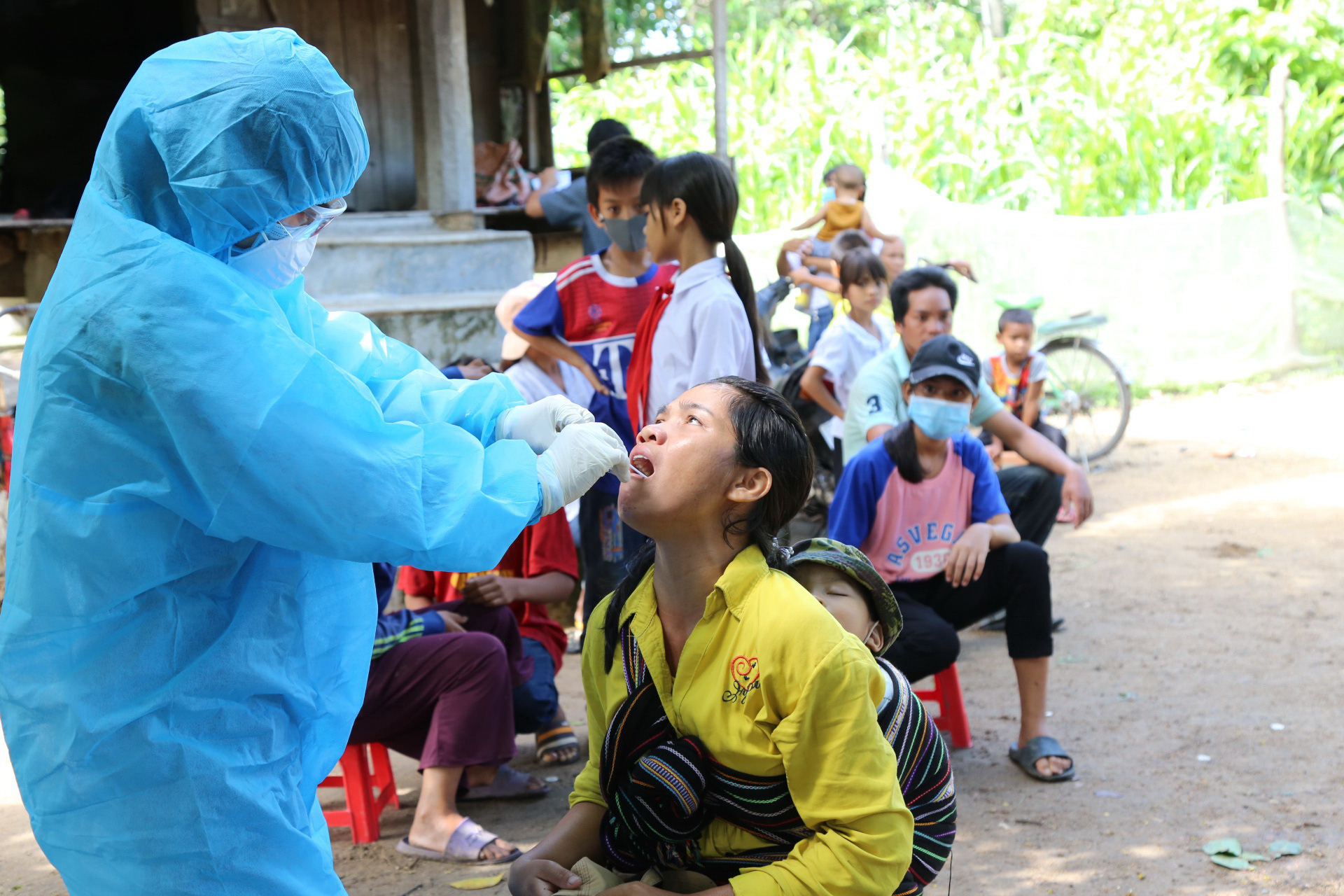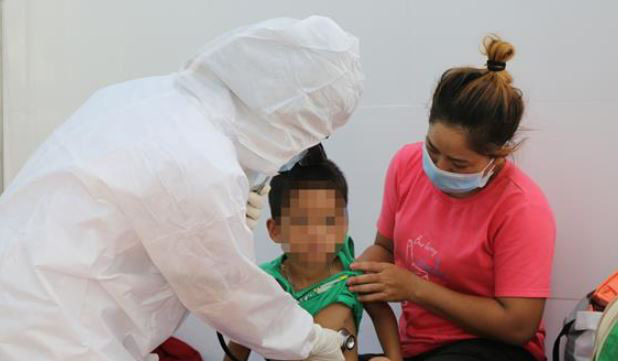As authorities across Vietnam’s Central Highlands attempt to reign in the ongoing diphtheria outbreak by vaccinating at-risk populations, their efforts are met with serious public pushback.
Diphtheria is an infection caused by strains of bacteria, called Corynebacterium diphtheria, which produce toxins that can in turn cause difficulty breathing, heart failure, paralysis, and even death, according to the U.S. Centers for Disease Control and Prevention.
At least 82 diphtheria cases have been reported in the Central Highlands provinces of Gia Lai, Kon Tum, Dak Nong, and Dak Lak so far this year – four times Vietnam’s annual average, according to the Ministry of Health.
“In 2019, the disease only broke out in Dak Lak, but this year three other Central Highlands provinces have reported diphtheria rising cases,” said the ministry.
Health officials are becoming increasingly alarmed by the anti-vax trend that seems to have taken a stranglehold on the region, particularly amid its worst diphtheria outbreaks on record.
The region’s health reports reveal that immunization rates in ethnic minority areas are relatively low, with the lowest found in Hmong communities, where just 40-50 percent of the population are vaccinated.
Authorities say that percentage needs to jump to 95 percent for the vaccine to be truly effective in protecting the population.
In Quang Hoa Commune, Dak Glong District, Dak Nong Province — the region’s main diphtheria hotspot — less than 50 percent of the community has agreed to receive a diphtheria shot.
Health workers are in such disbelief that they have begun asking those who refuse the vaccination to write letters of confirmation as evidence when there is any inspection by their superiors.
A letter written by 26-year-old T.T.M. in January 2019 declared that she did “not want to be vaccinated” despite health workers visiting her home to persuade her.
Another resident, H.T.S., stated in a letter written in February 2020 that she was “reluctant to be vaccinated” and pledged that she would take full responsibility for the consequences of that decision.
Nguyen Thi Thanh Nga, head of the commune’s health center, admitted that oftentimes the letters are written by the local health workers themselves and are simply signed by the anti-vaxxers — mainly ethnic minority residents in remote villages.
Nguyen Thi Thanh Huong, director of the Health Department in Dak Nong Province, told Tuoi Tre (Youth) newspaper that health workers use the letters as proof of their efforts to call for vaccination and evidence of the lack of cooperation from local people.
Huong also noted that these letters began emerging in 2019 and early 2020, well before the current diphtheria outbreak.
|
|
| A child receives treatment for diphtheria at a health center of Cu M’gar District in Dak Lak Province, Vietnam. Photo: Vietnam News Agency |
In the past, Huong said, vaccination campaigns had workers visit public spaces in villages and communes to offer jabs.
When their efforts began being met with opposition, they started making visits to individual households to explain the benefits and dispel fears of side effects.
Still, many locals bluntly refuse the vaccination and health workers are occasionally threatened for showing up.
In 2013, the Vietnamese government issued a decree on administrative sanctions in the health sector stating that those who fail to undergo vaccination against infectious diseases will face fines.
That decree seems not to have been enforced in Dak Lak, where authorities have yet to issue a single fine, said Trinh Quang Tri, deputy director of the provincial Center for Disease Control.
“Local people refuse to cooperate so [we] aren’t able to give them the vaccine,” he said, adding that the only way to increase vaccination rates is to drum up public support.
Huynh Thanh Huynh, who leads the Health Center of Dak Glong District, said the Hmong people live far and wide, and have a tendency to bear many children.
Men work on farms for several days, or even a week before returning home, so their wives are primarily responsible for bringing up their children, Huynh added.
He said these mothers are often unable to speak Vietnamese, making it difficult for health workers to persuade them to vaccinate their children.
As a solution to the language barrier, the director said health officials often team up with pastors, religious leaders, village elders, and other trusted people in the community to get in contact with locals.
He added that leaflets and posters on dangerous, vaccine-preventable infectious diseases have been printed in six minority languages, including Rade and Mnong.
More than ten million shots of the diphtheria vaccine will be made available to the four Central Highlands provinces, and around 4.7 million locals between two months and 40 years of age will be vaccinated, the health director said.
Like us on Facebook or follow us on Twitter to get the latest news about Vietnam!























































